Politics
Deal to end longest US govt shutdown in history clears Congress
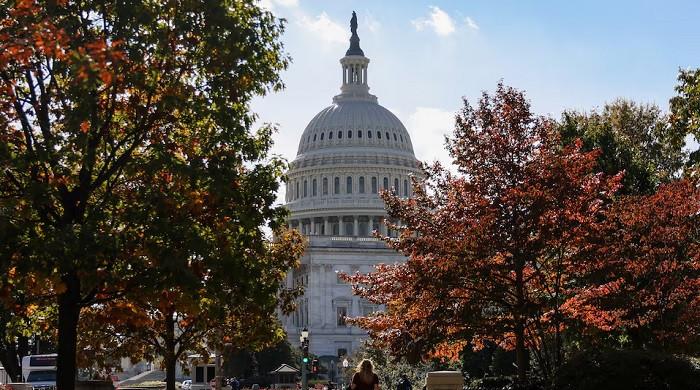
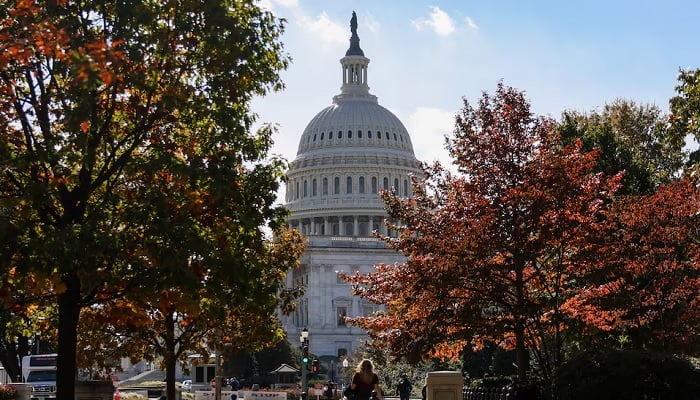
- House votes to advance funding package to end 43-day shutdown.
- Democrats oppose package due to lack of healthcare subsidies.
- Trump supports package, likely to pass with conservative backing.
A deal to end the longest government shutdown in US history cleared Congress on Wednesday, after the House of Representatives voted to restart disrupted food assistance, pay hundreds of thousands of federal workers and revive a hobbled air-traffic control system.
The Republican-controlled chamber passed the package by a vote of 222-209, with President Donald Trump’s support largely keeping his party together in the face of vehement opposition from House Democrats, who are angry that a long standoff launched by their Senate colleagues failed to secure a deal to extend federal health insurance subsidies.
The bill has already passed the Senate, and the White House said Trump will sign it into law later on Wednesday, ending the shutdown.
It would extend funding through January 30, leaving the federal government on a path to keep adding about $1.8 trillion a year to its $38 trillion in debt.
“I feel like I just lived a Seinfeld episode. We just spent 40 days and I still don’t know what the plotline was,” said Republican Representative David Schweikert of Arizona, likening Congress’s handling of the shutdown to the misadventures in a popular 1990s US sitcom.
“I really thought this would be like 48 hours: people will have their piece, they’ll get a moment to have a temper tantrum, and we’ll get back to work.”
He added: “What’s happened now when rage is policy?”
No promises on healthcare
The vote came eight days after Democrats won several high-profile elections that many in the party thought strengthened their odds of winning an extension of health insurance subsidies, which are due to expire at the end of the year. While the deal sets up a December vote on those subsidies in the Senate, Speaker Mike Johnson has made no such promise in the House.
Democratic Representative Mikie Sherrill, who last week was elected as New Jersey’s next governor, spoke against the funding bill in her last speech on the US House floor before she resigns from Congress next week, encouraging her colleagues to stand up to Trump’s administration.
“To my colleagues: Do not let this body become a ceremonial red stamp from an administration that takes food away from children and rips away healthcare,” Sherrill said.
“To the country: Stand strong. As we say in the Navy, don’t give up the ship.”
No clear winner from shutdown
Despite the recriminations, neither party appears to have won a clear victory. A Reuters/Ipsos poll released on Wednesday found that 50% of Americans blamed Republicans for the shutdown, while 47% blamed Democrats.
The vote came on the Republican-controlled House’s first day in session since mid-September, a long recess intended to put pressure on Democrats. The chamber’s return also set the clock ticking on a vote to release all unclassified records related to the late convicted sex offender Jeffrey Epstein, something Johnson and Trump have resisted up to now.
Johnson on Wednesday swore in Democrat Adelita Grijalva, who won a September special election to fill the Arizona seat of her late father, Raul Grijalva. She provided the final signature needed for a petition to force a House vote on the issue, hours after House Democrats released a new batch of Epstein documents.
That means that, after performing its constitutionally mandated duty of keeping the government funded, the House could once again be consumed by a probe into Trump’s former friend, whose life and 2019 death in prison have spawned countless conspiracy theories.
The funding package would allow eight Republican senators to seek hundreds of thousands of dollars in damages for alleged privacy violations stemming from the federal investigation of the January 6, 2021, attack on the US Capitol by Trump’s supporters.
It retroactively makes it illegal in most cases to obtain a senator’s phone data without disclosure and allows those whose records were obtained to sue the Justice Department for $500,000 in damages, along with attorneys’ fees and other costs.
Politics
World’s fossil fuel emissions to hit new record in 2025: study


PARIS: Global fossil fuel emissions are set to hit a new high in 2025, according to research published Thursday that also warns curbing warming under 1.5°C would now be essentially “impossible”.
The annual Global Carbon Budget report looks at humanity’s emissions of planet-heating CO2 from burning hydrocarbons, cement production and land use — like deforestation —and relates the figures to the warming thresholds outlined in the 2015 Paris Agreement.
An international team of scientists found that CO2 emissions from fossil fuels will be 1.1% higher in 2025 than a year ago, with the huge rollout of renewable technologies across the world not yet enough to compensate for growing energy demand.
With emissions from oil, gas and coal all set to rise, the overall figure is due to reach a record of 38.1 billion tonnes of CO2.
Released as nations meet for COP30 climate talks in the Brazilian Amazon, the new study calculated a remaining allowance of 170 billion tonnes of CO2 to limit warming to 1.5°C from pre-industrial levels — the goal outlined in the Paris Agreement.
“This equates to four years of emissions at the current rate before the budget for 1.5°C is exhausted, so that is impossible, essentially,” said Pierre Friedlingstein of Britain’s Exeter University, who led the research.

The failure to cut planet-heating emissions is overshadowing the COP30 in the rainforest city of Belem — the conference taking place this week without the presence of the United States, the world’s second-largest polluter.
Despite indications that 2025 will be one of the hottest years ever recorded, nations’ future climate plans have also fallen far short.
“Collectively, the world is not delivering,” Glen Peters, at the CICERO Centre for International Climate Research, told AFP.
“Everyone needs to do their bit, and all of them need to do more.”
Not yet peaked
Peters said fossil emissions in China were largely “flat” this year, particularly from highly polluting coal, which could indicate that renewables will start to take a greater share of energy demand.
But he said policy uncertainty in the world’s biggest carbon polluter meant it was too early to declare it had reached a peak.
“The balance is shifting towards where you would start to expect emissions to go down, but it will take some time,” he said.
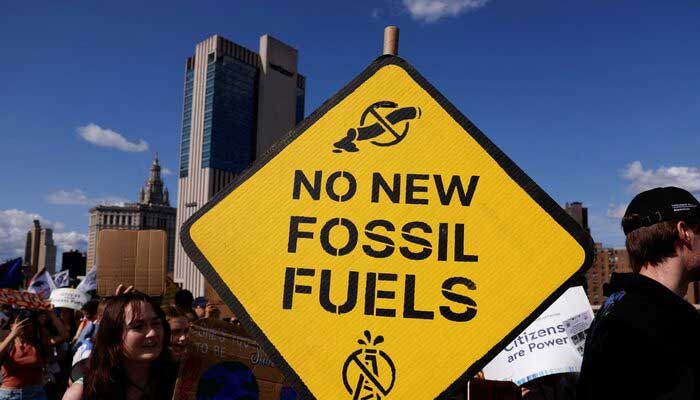
In the US, coal emissions rose 7.5%, as higher gas prices saw power generation switched to the more polluting fuel.
Overall, both the US and EU bucked recent downward trends with increased emissions, partly linked to cooler winter months spurring demand for heating.
In India, an early monsoon and strong renewables growth helped drive a smaller CO2 rise than in recent years.
The study, published in the journal Earth System Science Data, found that 35 countries had now managed to reduce their emissions while also growing their economies — twice as many as a decade ago.
Humanity’s total emissions including from land were projected to reach 42.2 billion tonnes this year — slightly lower than last year, although this was subject to wide uncertainty.
Researchers said a reduction in deforestation and damaging fires in South America — partly linked to the end of very dry 2023-2024 El Nino conditions — had played a role in reducing net land use emissions.
Politics
U.S. Government Shutdown Ends After House Vote

Congress on Wednesday ended the longest government shutdown in US history — 43 days that paralysed Washington and left hundreds of thousands of workers unpaid while Donald Trump’s Republicans and Democrats played a high-stakes blame game. The Republican-led House of Representatives voted largely along party lines to approve a Senate-passed package that will reopen federal departments and agencies, as many Democrats fume over what they see as a capitulation by party leaders.
They knew that it would cause pain, and they did it anyway,” House Speaker Mike Johnson said in a withering floor speech before the vote, pointing the finger for the standoff at the minority party.
“The whole exercise was pointless. It was wrong and it was cruel. The package — which Trump is scheduled to sign later Wednesday evening — funds military construction, veterans’ affairs, the Department of Agriculture and Congress itself through next fall, and the rest of government through the end of January.
Around 670,000 furloughed civil servants will report back to work, and a similar number who were kept at their posts with no compensation — including more than 60,000 air traffic controllers and airport security staff — will get back pay.
The deal also restores federal workers fired by Trump during the shutdown, while air travel that has been disrupted across the country will gradually return to normal.
Trump himself had little to say on the vote, although he took to social media to falsely accuse Democrats of having “cost our Country $1.5 Trillion… with their recent antics of viciously closing our Country.”
The full financial toll of the shutdown has yet to be determined, although the Congressional Budget Office estimates that it has caused $14 billion in lost growth.
– ‘Not backing away’ –
Johnson and his Republicans had almost no room for error as their majority is down to two votes.
Democratic leadership — furious over what they see as their Senate colleagues folding — had urged members to vote no and all but a handful held the line.
Although polling showed the public mostly on Democrats’ side throughout the standoff, Republicans are widely seen as having done better from its conclusion.
For more than five weeks, Democrats held firm on refusing to reopen the government unless Trump agreed to extend pandemic-era tax credits that made health insurance affordable for millions of Americans.
Election victories in multiple states last week gave Democrats further encouragement and a reinvigorated sense of purpose.
But a group of eight Senate moderates broke ranks to cut a deal with Republicans that offers a vote in the upper chamber on health care subsidies — but no floor time in the House and no guarantee of action. Democrats are now deep in a painful reckoning over how their tough stance crumbled without any notable win.
Democratic leadership is arguing that — while their health care demands went largely unheard — they were able to shine the spotlight on an issue they hope will power them to victory in the 2026 midterm elections. Over the last several weeks, we have elevated successfully the issue of the Republican health care crisis, and we’re not backing away from it,” House Minority Leader Hakeem Jeffries told MSNBC.
But his Senate counterpart Chuck Schumer is facing a backlash from the fractious progressive base for failing to keep his members unified, with a handful of House Democrats calling for his head. Outside Washington, some of the party’s hottest prospects for the 2028 presidential nomination added their own voices to the chorus of opprobrium.
California Governor Gavin Newsom called the agreement “pathetic,” while his Illinois counterpart JB Pritzker said it amounted to an “empty promise.” Former transportation secretary Pete Buttigieg called it a “bad deal.”
Politics
U.S. Government Shutdown Ends After House Vote
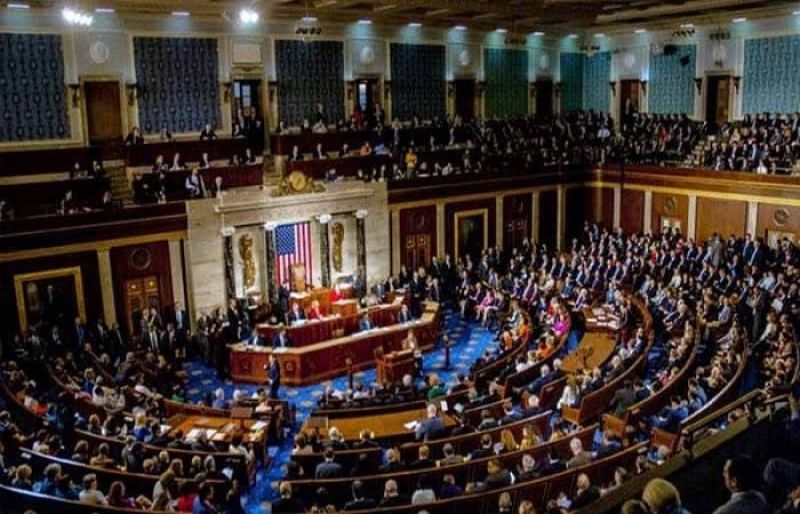
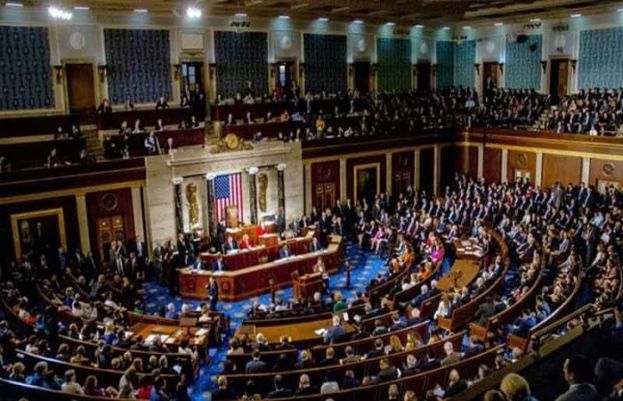
Congress on Wednesday ended the longest government shutdown in US history — 43 days that paralysed Washington and left hundreds of thousands of workers unpaid while Donald Trump’s Republicans and Democrats played a high-stakes blame game. The Republican-led House of Representatives voted largely along party lines to approve a Senate-passed package that will reopen federal departments and agencies, as many Democrats fume over what they see as a capitulation by party leaders.
They knew that it would cause pain, and they did it anyway,” House Speaker Mike Johnson said in a withering floor speech before the vote, pointing the finger for the standoff at the minority party.
“The whole exercise was pointless. It was wrong and it was cruel. The package — which Trump is scheduled to sign later Wednesday evening — funds military construction, veterans’ affairs, the Department of Agriculture and Congress itself through next fall, and the rest of government through the end of January.
Around 670,000 furloughed civil servants will report back to work, and a similar number who were kept at their posts with no compensation — including more than 60,000 air traffic controllers and airport security staff — will get back pay.
The deal also restores federal workers fired by Trump during the shutdown, while air travel that has been disrupted across the country will gradually return to normal.
Trump himself had little to say on the vote, although he took to social media to falsely accuse Democrats of having “cost our Country $1.5 Trillion… with their recent antics of viciously closing our Country.”
The full financial toll of the shutdown has yet to be determined, although the Congressional Budget Office estimates that it has caused $14 billion in lost growth.
– ‘Not backing away’ –
Johnson and his Republicans had almost no room for error as their majority is down to two votes.
Democratic leadership — furious over what they see as their Senate colleagues folding — had urged members to vote no and all but a handful held the line.
Although polling showed the public mostly on Democrats’ side throughout the standoff, Republicans are widely seen as having done better from its conclusion.
For more than five weeks, Democrats held firm on refusing to reopen the government unless Trump agreed to extend pandemic-era tax credits that made health insurance affordable for millions of Americans.
Election victories in multiple states last week gave Democrats further encouragement and a reinvigorated sense of purpose.
But a group of eight Senate moderates broke ranks to cut a deal with Republicans that offers a vote in the upper chamber on health care subsidies — but no floor time in the House and no guarantee of action. Democrats are now deep in a painful reckoning over how their tough stance crumbled without any notable win.
Democratic leadership is arguing that — while their health care demands went largely unheard — they were able to shine the spotlight on an issue they hope will power them to victory in the 2026 midterm elections. Over the last several weeks, we have elevated successfully the issue of the Republican health care crisis, and we’re not backing away from it,” House Minority Leader Hakeem Jeffries told MSNBC.
But his Senate counterpart Chuck Schumer is facing a backlash from the fractious progressive base for failing to keep his members unified, with a handful of House Democrats calling for his head. Outside Washington, some of the party’s hottest prospects for the 2028 presidential nomination added their own voices to the chorus of opprobrium.
California Governor Gavin Newsom called the agreement “pathetic,” while his Illinois counterpart JB Pritzker said it amounted to an “empty promise.” Former transportation secretary Pete Buttigieg called it a “bad deal.”
-

 Business1 week ago
Business1 week agoSetback for expatriates? Delhi HC upholds mandatory EPFO membership; what this means for foreign staff – The Times of India
-

 Business1 week ago
Business1 week agoGST rationalisation impact: Higher RBI dividend expected to offset revenue shortfall; CareEdge flags tax pressure – The Times of India
-

 Tech1 week ago
Tech1 week agoBlood Tests for Alzheimer’s Are Here
-

 Fashion1 week ago
Fashion1 week agoGermany’s Adidas achieves highest-ever quarterly sales in Q3 2025
-
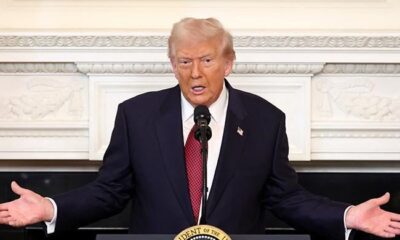
 Politics1 week ago
Politics1 week agoTrump links Republicans’ election setbacks to record US govt shutdown
-
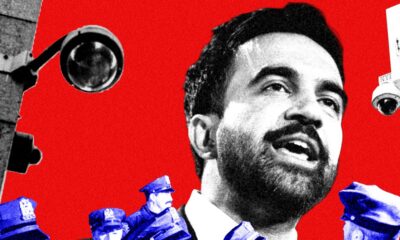
 Tech1 week ago
Tech1 week agoZohran Mamdani Just Inherited the NYPD Surveillance State
-

 Fashion1 week ago
Fashion1 week agoBangladesh Bank allows foreign currency-taka swap facility for dealers
-

 Tech1 week ago
Tech1 week agoThe Security Interviews: Colin Mahony, CEO, Recorded Future | Computer Weekly






